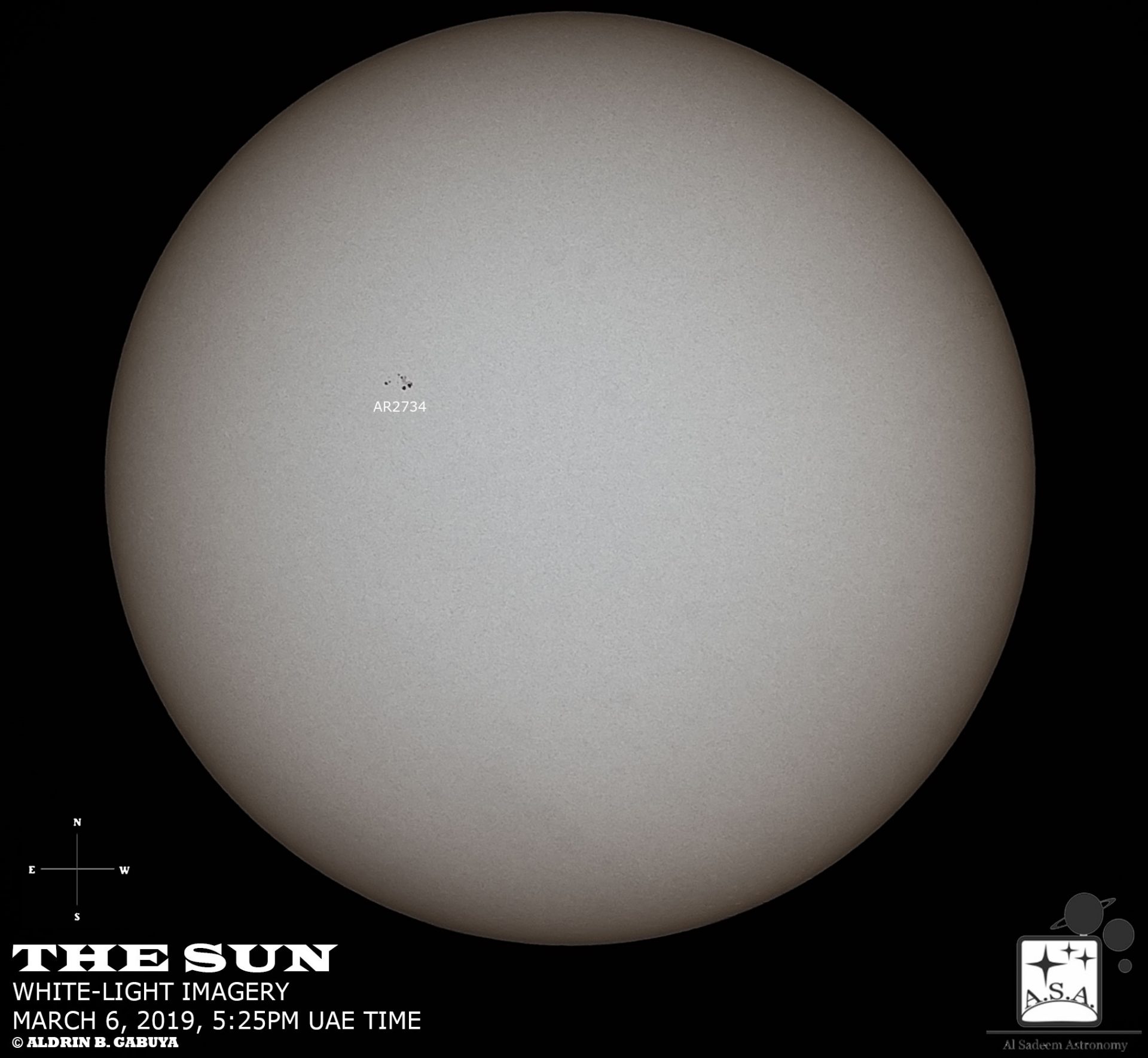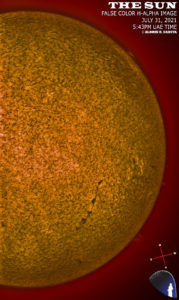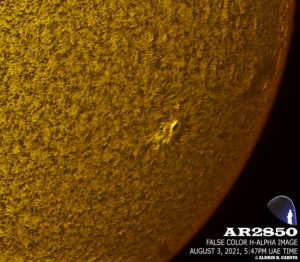Mostly cloudy skies has prevailed (luckily got some through a small, quick sky opening) which provided poor seeing and transparency at the time these images were taken. Nonetheless, here is today’s visible solar imagery taken from Al Sadeem Observatory, March 6 2019.
The area of pores seen yesterday has fully developed and designated AR2734. It produced several minor A-class flares over the past 24 hours, according space weather agency reports. Its current small structure signifies low probability of any major flaring activity in the next 2-3 days. The latest sunspot number (based on visual count and Wolf number calculation) is 15.
Space weather agencies* forecast solar activity to remain at low levels with chances of weak X-ray fluxes or flares ranging up to B-class intensity (mainly from AR2734). The extent of the frequency and intensity of the Sun’s activity will highly depend on the magnetic flux fluctuations happening in the visible ARs in the coming days. Close monitoring is being conducted by numerous space weather agencies for any significant development.
Equipment used are Skywatcher 120mm refractor telescope with Baader filter and unmodified Canon EOS 1D Mark IV DSLR camera for visible imagery and Lunt H-alpha solar telescope and ZWO120MM CMOS camera for H-alpha imagery, mounted on Skywatcher EQ6 Pro. Pre-processing of visible solar images was performed in PIPP, stacking in Autostakkert, slight wavelet adjustments in Registax 6 and post-processing in Adobe Photoshop CC.
*Technical reports courtesy of Solar Influence Data Center (SIDC), NOAA-Space Weather Prediction Center (NOAA-SWPC)
Weather Data (5:00PM – 5:30PM, March 6, 2019):
Average Temperature: 25°C
Average Humidity: 39.5%
Average Wind Speed and Direction: 14 kph from NNE
Average Cloud Cover: 80%
Average Air Pressure: 1000.3 hpa
Average Solar Radiation: 91.95 W/m^2
Average UV Radiation: 99 µW/m^2 (low)




